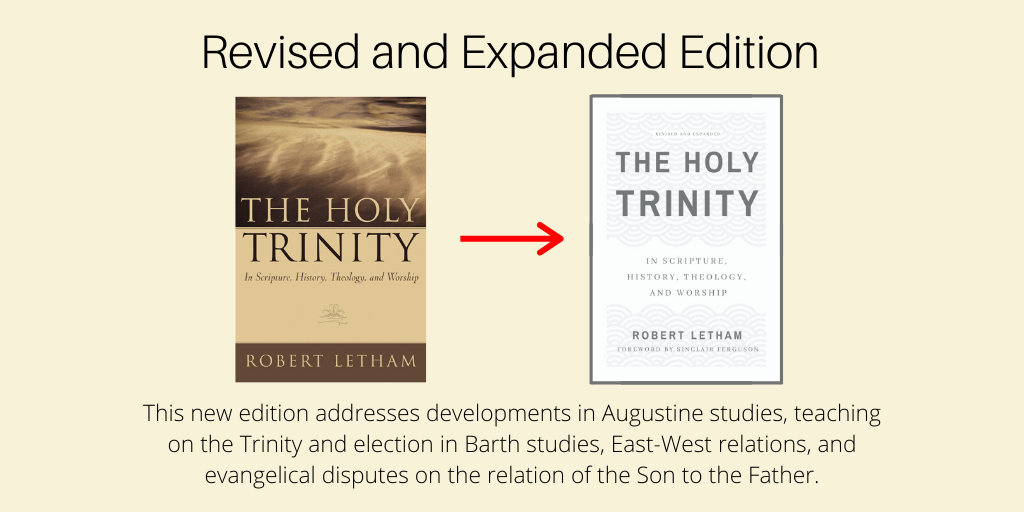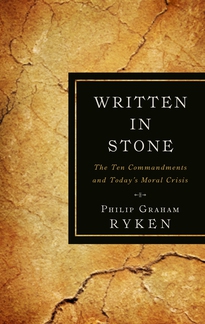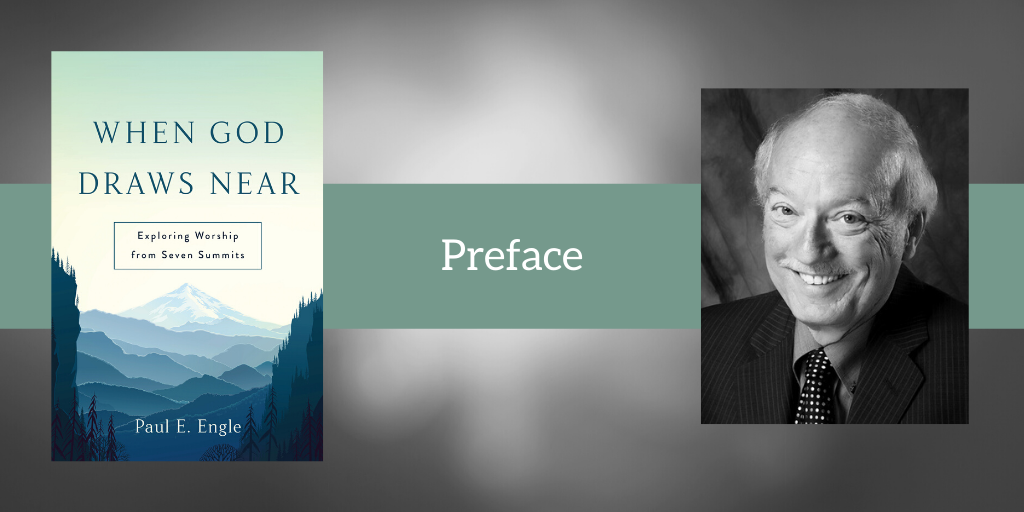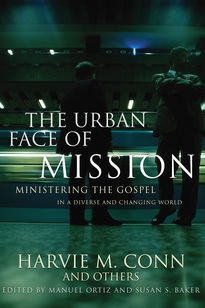This week’s author interview is with James Petty. He is the author of new release, Act of Grace: The Power of Generosity to Change Your Life, the Church, and the World. He is also author of Step by Step: Divine Guidance for Ordinary Christians, Priorities: Mastering Time Management, and Guidance: Have I Missed God’s Best?.
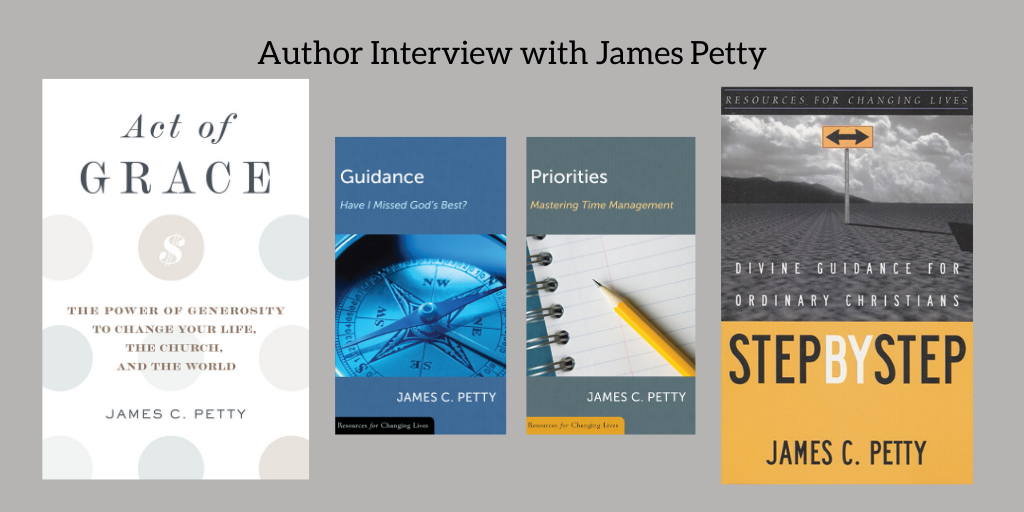
- Tell us a little bit about yourself: where you’re from, family, job, personal interests, unique hobbies, what you do in your spare time, etc.
Brief Bio: I was reared in Greensboro NC by an ardently Christian set of parents. I was the oldest of four boys and graduated from Greensboro High School (now Grimsley HS). I spent most of my spare time in High School training for the swimming team, helping to lead a Youth For Christ chapter, and playing trumpet in the band. I obtained a physics degree from Wheaton Collge, with a lot of studies in philosophy. I had doubts about my faith and so enrolled at Westminster Theological Seminary in Philadelphia where my faith was renewed. In 1968 some students began doing evangelism at U. Penn and we found ourselves with a group of converts which resulted in an “on campus’ church. I pastored there for 12 years. Then spent the next 22 years as a staff member at the Christian Counseling & Educational Foundation as a staff counselor and Director of Development. I retired from there in 2003 to begin a public foundation (Children’s Jubilee Fund) to assist low-income city families with gaining access to the many Christian schools serving the urban community. In 2015 I retired again and moved to Wilmington, NC to write. This has also given me more time to pursue interests in apologetics, fishing, boating, and swimming. See the end of this post for a more in-depth look at my life.*
- When did you first want to write a book?
I wanted to write a book because of a message that burned in my bones. So I wrote Step by Step in the late 90’s to broadcast the message that God’s positive will for us is found through wisdom and discernment worked in us by the Word and Spirit of God. I argued that this was the NT model for guidance – even though God often spoke directly to prophets, apostles and others.
- Which writers inspire you?
Non-fiction writers who participate in bringing about a “paradigm shift” in thinking and or practice. Augustine, Luther, Calvin, Edwards, Kuyper, Van Til (Frame), Steve Monsma, Tim Keller. Also Marx, Darwin, Satre, Camus, Dawkins, Sean Carrol.
- What inspired you to write about this topic in Act of Grace?
As a development officer and then Foundation executive, I have seen the tremendous untapped capacity of the world wide Christian community to address the curses of poverty and ignorance of the gospel. I wrote Act of Grace to motivate and guide Christian leaders to buy up this opportunity for God’s glory and the advancement of his will on earth.
- Do you have a favorite author? Who is it and why?
John Frame: Because he articulates in clearest ordinary language the teachings of Scripture in answer to the questions that arise when we read the Bible.
- Favorite sport to watch? Why? Favorite sport’s team?
Philadelphia Eagles and Sixers. In my 50 years in Philly I became an adopted Philadelphia lover.
Swordfish: Because it powerful, beautiful, swims deep, is hard to catch and is good to eat.
*Here is my fuller story:
I grew up in Greensboro, NC in a strong Christian home and church (Westover Church). I knew and believed the gospel from a very young age. In high school my Christian life, though active, was dry and consisted of certain “behaviors and the attempt to maintain a clean conscience.” This continued during my four years at Wheaton College. By my senior year my childhood faith was shaken and I was convicted to seriously seek God, not just from the emptiness of the religious behaviors but also for the basic intellectual questions that were now stumbling blocks to my faith. I determined to attend Westminster Seminary, not to prepare for ministry but to seek answers to my questions. I was influenced to attend there by Ed Clowney and the reputation of Cornelius Van Til. There in March of my first year God met me in a powerful way. I repented of my unbelief and my presumed autonomy from God. God answered my intellectual doubts and questions, and I experienced true Christian joy for the first time as I finally understood who God actually was.
During the last three years in seminary I gave myself passionately to understanding this now thrilling faith. I also met the love of my life – a visiting master’s student from Covenant Seminary. With her and some other WTS friends, we began to do evangelism at the University of Pennsylvania and in my junior year (1968) took the lead in beginning a church oriented to reaching students from the “counter culture.” The church plant became a self-supporting particular church in 1970 and I was ordained in the Orthodox Presbyterian Church and pastored there until 1982. These were the years of the Jesus movement and with the help of other leaders in the church we saw scores of men and women in their 20s come to Christ and be joined to the church — which by this time numbered about 150 souls. In 1976 this led to the formation of a daughter church (Grace OPC) in Southwest Philadelphia under the initial leadership of Rev. Tom Corey — a former elder at Church of the Redeemer who became the church planter.
The two churches were prospering spiritually and biologically with many weddings and the resultant births. That raised questions about how we as young couples would educate our growing horde of children in a large urban city with a school system often destructive of the education of less wealthy children. In 1978, after much prayer and sobering discussion, and with the encouragement of some friends, I was led to take the lead in forming what is now know as The City School – a community based Christian K-8 school and continued as its volunteer board chairman until 1993. The school opened with 67 students at 42nd and Baltimore Ave with Paul Miller as founding principal. It is now a K-12 multi-site school with 400 students.
The stress of pastoring Church of the Redeemer and chairing the fledgling school in 1978-79 forced me to come to grips with some of my limitations in pastoral leadership and native energy. Health problems resulted in my being granted an unpaid 9 month sabbatical for spiritual and physical renewal. Marsha and I spent the time at the NC coast and after some recovery I did a life changing study of and wrote a report on, Principles of Diaconal Ministry. This report to the General Assembly of the OPC brought me face to face with issues of mercy/justice ministry that would impact me for the reminder of my career. Based on this new vision for involvement with the poor, in addition to chairing the City School board, I also accepted a position as a founding board member of the Center for Urban Theological Studies. Under the leadership of Bill Krispin CUTS provided credentialed bachelor level training to urban church leaders who lacked access to college level training as well as access to theological and biblical training. This drew me into partnership with urban church leaders from the African American churches of Philadelphia. These relationships became large part of my “education” regarding racial matters in the church and a source of precious wisdom and support in the work of the Lord in urban contexts. I served on the board of CUTS for much of the period of 1978 to 2014 and saw the college graduate 650 church leaders, many of whom became preeminent kingdom initiators in the years that followed. In 2014 CUTS became a part of Lancaster Bible College and thankfully continues to fulfill this educational mission to this day.
In 1980 I returned (from sabbatical) to Church of the Redeemer on a half time basis and Tom Corey was called as the new full time pastor. I also transitioned to a half time position as a pastoral counselor at the newly hatched Christian Counseling & Educational Foundation, associated with Westminster, and found a resonance with that kind of personal ministry.
In 1982 I resigned from the associate pastor position at the Church of the Redeemer and for two years worked half time to lead the effort to raise the funds for a headquarters building for CUTS. I received generous support from family and friends so that I could wade into the new waters of Kingdom fund raising. After successfully purchasing the needed building and doing initial renovations, in 1984 I accepted a full time position at CCEF as staff pastoral counselor and within two years became their first Development Director, while maintaining the counseling practice begun in 1980. The development and counseling work at CCEF would occupy me for the next 20 years. I would have the joy of seeing CCEF grow to raise over $1,000,000 annually from a highly committed base of donors and the launching of an annual conference ministry (formerly the Alumni conference) that would prove to be a major touch point with the larger body of CCEF students, counselees, pastors and donors. The counseling practice evolved into a Christian conciliation practice based at CCEF and is continued today through a number of private practitioners in the Philly area. In 1997 I also tried my hand at theological writing – publishing Step by Step, a book on the theology of divine guidance.
In 1993-1996, I and a group of urban Christian leaders struggled with how to make Christian schools viable and accessible for lower income city families. Our school was forced to dramatically raise tuition in order to survive, significantly reducing enrollments. Out of this struggle a new ministry was launched –Children’s Jubilee Fund. It was begun to open the door to Christian schooling for lower-income urban children. I agreed to chair the board for this new venture and in 1997 we raised $25,000 from two donors and began to make grants to five Christian schools for low income families wanting to attend their schools. By 2003 (without any professional staff) we were only raising about $60,000 benefitting about 50 students.
The needs were much greater that this and so in 2003 I accepted the challenge of leaving my full time job at CCEF and becoming the first Executive Director of Children’s Jubilee Fund – working partially at my own expense, in order to launch the work. That has been the ministerial focus of my work through 2014. It has involved learning about the challenges for low-income urban Christian parents, educating suburban Christians and enlisting contributions for our scholarship fund. God graciously blessed the work and the strategic plan with steady increases in scholarship income to about $1,000,000 year in 2014. I retired in 2014 as the Executive Director but remain on as a volunteer consultant for leadership transition and Planned Gifts.
In 2015 I moved to Wilmington, NC to be near children and grand children and am now active in helping to establish Christ the King Presbyterian Church (PCA) in Wilmington NC. The church appointed me to lead its capital campaign and chair the newly formed mercy/justice team at the church. We are working to engage our new church with the realities and needs of urban ministry here in Wilmington, NC. I am also blessed to be able to continue my theological writing ministry with a second book on the theology of generosity, Act of Grace.

